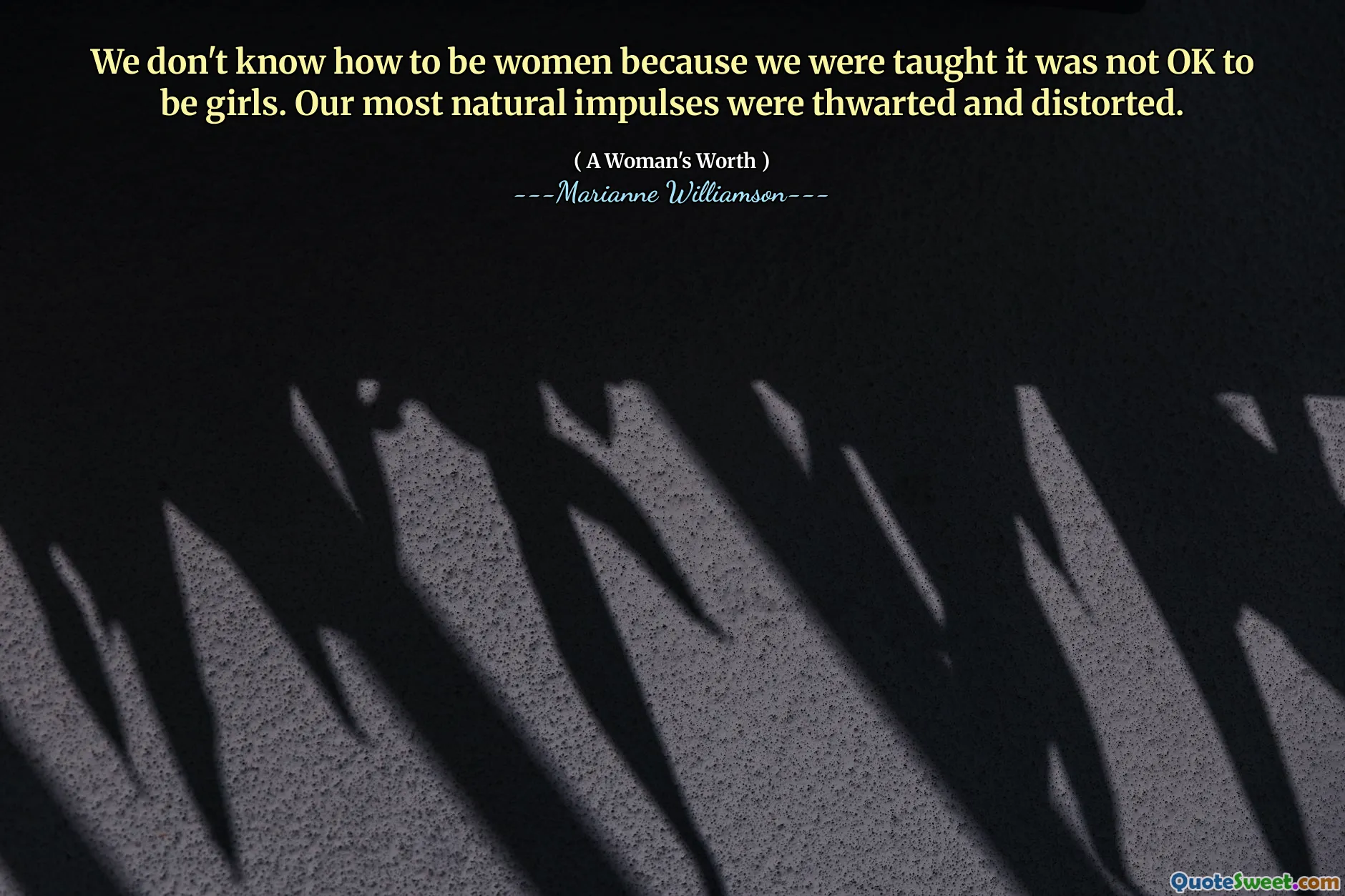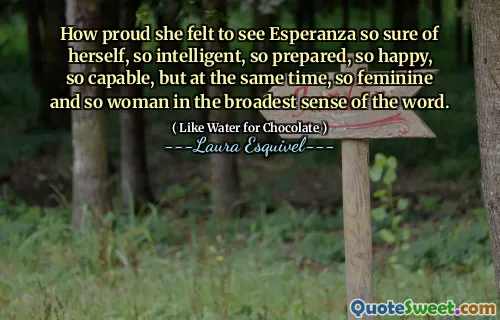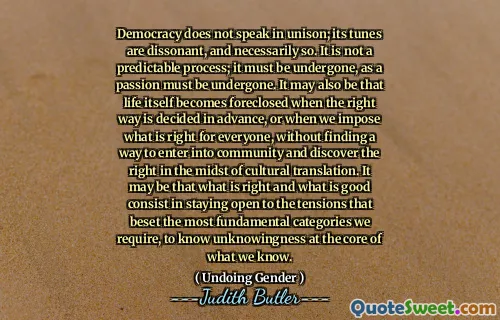
We don't know how to be women because we were taught it was not OK to be girls. Our most natural impulses were thwarted and distorted.
This quote delicately highlights the deep-rooted societal conditioning that impacts women's understanding of their own femininity. It suggests that many women grow up feeling disconnected from their authentic selves because they were environments where their initial curiosity, innocence, and expressive nature—their natural impulses—were suppressed or distorted. Such upbringing leads to a generational cycle where girls are taught to hide or diminish what comes naturally to them, often out of fear, cultural expectations, or social pressures. As a result, women may struggle with self-acceptance, understanding of their worth, and asserting their true selves.
This suppression doesn't just affect individual self-esteem but also influences how women perceive their roles within society. Instead of embracing their intuitive qualities, women are conditioned to conform and suppress their natural instincts, which can lead to feelings of inadequacy or loss of identity. Recognizing this pattern prompts a necessary reflection on how societal norms shape gender roles and expectations.
Understanding that these issues are rooted in systemic conditioning opens the door for healing and empowerment. It encourages us to revisit how femininity is taught and to foster environments where women can reconnect with their natural impulses without fear or shame. Only then can true authenticity emerge, allowing women to reclaim their worth and truly know how to be women—whole, confident, and free.
This insight from Marianne Williamson within 'A Woman's Worth' vividly calls for a collective consciousness shift—toward nurturing genuine self-awareness and dismantling the barriers that hinder women from embracing their true selves.




